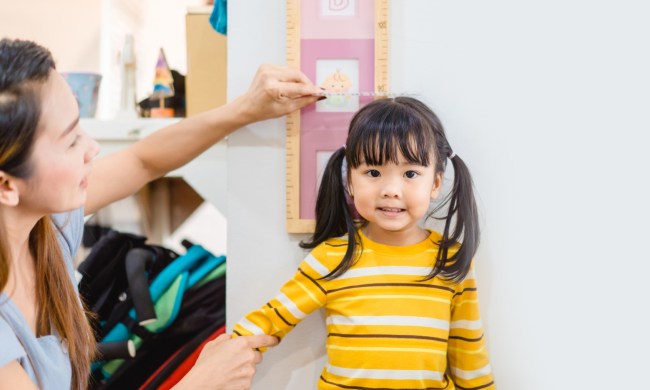
Your sweet infant has depended on you for the comfort, connection, nutrition, and survival that breastfeeding has given them their entire life. It’s been emotional for you, too—someone was completely dependent on you 24/7, and that was overwhelming and fulfilling at the same time. Your bond has been linked to breastfeeding, and now you’re wondering if it’s time to wean. No one besides you can make that choice, but here is the best advice we have to offer to help you through this time that is pulling at your heartstrings.
When babies grow into toddlers, it is exciting and sentimental. We want them to grow up, but not too fast. We want them to be independent, but not forget us. Parenting is full of these conflicting feelings through every stage, but this is the very first shift from one stage to another, so it’s that much more sensitive. For parents who are breastfeeding, there is another element of physically separating yourself, which can be hard on both of you.
How to know it’s time to stop breastfeeding your toddler
There are no simple answers here, but there are a few factors that may lead you to the decision to wean. You may want your body back for your mental health, or you may be unable to sustain pumping at work. You may be seeing behavioral issues in your toddler, like nipple biting that you want to stop. Or you may feel you’re ready, or they’re ready, or both. There are a few medical reasons to stop breastfeeding, like if the breastfeeding parent needed a medical treatment that made their breastmilk unsafe for their child to drink. Otherwise, a child can healthily breastfeed until just about any age.
Major health organizations recommend breastfeeding for at least one year, with some suggesting two years. All of them (CDC, Academy of American Pediatrics, WHO, American Academy of Family Physicians, etc.) say that breastfeeding is healthy and beneficial past two years. Since you introduced solids around 6-months-old, breastmilk (and formula if supplementing) slowly becomes less of a significant chunk of your child’s nutritional intake each month until they can survive on food and any milk (such as cow milk) entirely. In the U.S., this point of deeming breastmilk no longer necessary is at the one year mark, but as has been mentioned, that doesn’t mean there’s any issue breastfeeding beyond one year as long as it still works for you and your child.
According to some data, children worldwide self-wean (turn away from nursing on their own) anywhere between 2.5 and 7-years-old, or sometimes younger. If you want to wait until your child self-weans, the signs will be that they don’t ask to breastfeed anymore. This can come on suddenly and be emotionally difficult for the parent if they didn’t know it was coming, so it’s best to prepare yourself as soon as they turn one since they can become ready and turn away at any time. Even if you want to keep breastfeeding until your child self-weans, you can put up boundaries as they get older, like only nursing at bedtime.
If your child is still asking to breastfeed, but you don’t want to anymore, know that this choice about your own body and parenting is valid. It’s OK to stop for yourself even if that wasn’t your plan on Day One. Your mental and physical health also matters—remember that a happy parent best serves your child. Just like child-led weaning, parent-led weaning doesn’t have to be a hard stop—it can be an introduction of boundaries that eventually leads to complete weaning.
If you’re searching for a hard rule to know it’s time to stop nursing, you, unfortunately, won’t find one. It’s a personal choice. You can transition away from breast milk to formula if your child is under 1-year-old or cow’s milk if your child is over 1 – any time you feel is right. Trust your gut and seek support for the emotional side of the transition.

How to wean a toddler from nursing
Your toddler’s age will impact your strategy. If they are old enough to have full conversations with, you can talk about how milk is going “bye-bye” or whatever language is natural for you. If they’re old enough to tell you with words about how that’s OK or how it makes them sad, you’ll be able to address it like any other change or rule.
If nursing time is snuggle time, replace nursing with a bottle or sippy cup of another drink, and still give them the same cuddles. They can lean their head on your chest as they drink to ease the transition. If another parent or parental figure can do bedtime for a bit, it may also help not to have the breastfeeding parent around as much while they’re still associated with breastfeeding.
If they’re a big kid, you could even frame it as a celebratory growing up moment and give them cake and a party to say goodbye to nursing! Distract them with a present as congratulations for growing up.
These methods, like “don’t offer/don’t refuse,” are also tried and true. Whatever you do, it will be right for you.



